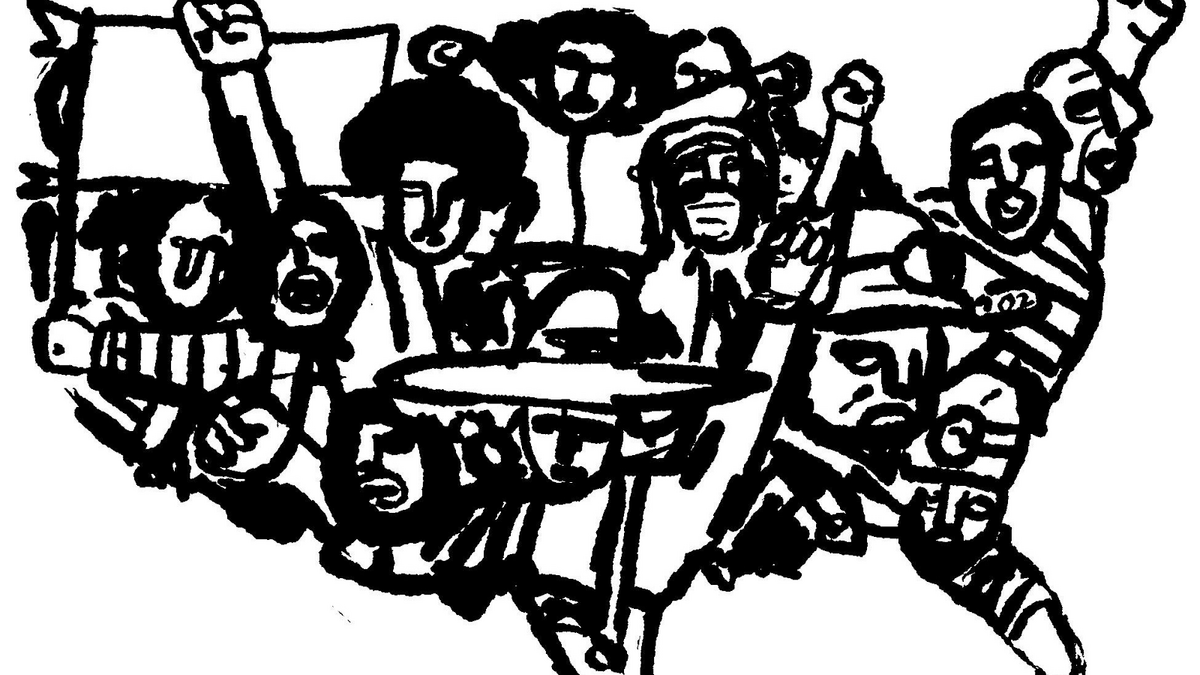Sociology grad receives award for her thesis on police funding

Artwork by Adam Maida
Ayesha Ahsan, a sociology student in Arizona State University's T. Denny Sanford School of Social and Family Dynamics, was awarded the Barrett Honors Thesis SSFD 2020–21 Award for her outstanding work.
Her initial thesis topic was about the impact of immigration on the economic development and growth in Phoenix, but due to COVID-19, it was extremely difficult for her to collect the data she needed. Being inspired by the Black Lives Matter movement and by her fascination of the calls to defund police departments across the country, she wanted to determine the impact of government funding toward policing on community safety.
“With guidance from my thesis director, Dr. Kelvin Wong from the economics department, and my second reader, Jennifer Harrison from SSFD, I decided to structure my thesis as almost an 'Abolition 101' guide, in which I provided an in-depth discussion on abolitionist thought and theory, the history behind the movement to abolish police and prisons, and then the analysis that I conducted on police spending," Ahsan said.
"I did this because I realize that many average citizens do not necessarily know what abolition means and tend to picture complete anarchy when activists call for defunding and eventually abolishing the police. This is not the goal of the Black Lives Matter and the abolition movement, so I felt it was essential to meet people where they are at and provide them all of the information they need in an accessible manner so that they can form their own opinions without the pressures of political parties and media outlets. I myself was not very familiar with abolition theory before starting this project and worked closely with Dr. Christine Holman from the justice studies department to learn more about the ideology.
Ayesha Ahsan
"For my economic analysis, I conducted a regression analysis to understand the relationship between expenditures on policing and crime rates in Phoenix, Tucson, Mesa and Chandler. The data collection for this portion was incredibly time-consuming and tedious. It required me to dig through hundreds of budget reports to find the exact numbers related to spending in precinct and patrol, community relations, professional standards and training for the police departments of each of the cities mentioned. With the data that I found and crime statistics for each of the cities that I pulled from an FBI database, I set up and ran a regression. Through this, I found no statistical significance to suggest that police spending reduces crime rates, which aligns with the argument that abolitionists make. Additionally, I found that public expenditures towards workforce training, housing and human services have much more impact in reducing crime rates than policing.”
Harrison, a Barrett Honors faculty member, has had Ahsan in several of her sociology courses. She also served on her thesis committee, where Ahsan successfully and clearly articulated issues of institutional racism within policing and the prison-industrial complex while explaining how to potentially create positive change.
“I am beyond proud of the work and service that she has accomplished in her four years here at ASU," Harrison said. "Ayesha has consistently fought for herself and for others, and I have never had so much confidence in a student that she will continue to be a successful leader in the future.”
Ahsan found the thesis process to be incredibly transformative. Not only did she learn a great deal, but she feels her final product is capable of creating meaningful change.
“I feel incredibly honored to have received the Barrett Honors Thesis SSFD 2020–21 Award, especially considering the incredibly impressive theses that my peers worked on and submitted this year," Ahsan said. "This recognition gives me a sense of optimism as it indicates that many individuals are open to discussing this controversial issue. The selection committee undoubtedly held a wide range of views, but their ability to keep an open mind when reviewing my thesis shows me that dialogue and subsequent change are entirely possible. Ultimately, through this process, my commitment to the pursuit of racial justice is stronger than ever.”
Ahsan is graduating with dual degrees in sociology and economics this spring.
More Arts, humanities and education

School of Social Transformation faculty member assumes new title with NSF
School of Social Transformation faculty member and Founding Executive Director of the Center for Gender Equity in Science…

ASU's Neal Lester reflects on life, death of poet Nikki Giovanni
When Neal Lester heard on Monday that poet and activist Nikki Giovanni had died, the news hit hard.Lester, the founding director…

Learning by stepping outside
By Adriana MaestasAmid a world increasingly captivated by all things digital, more than 200 Arizona teachers have crafted…
